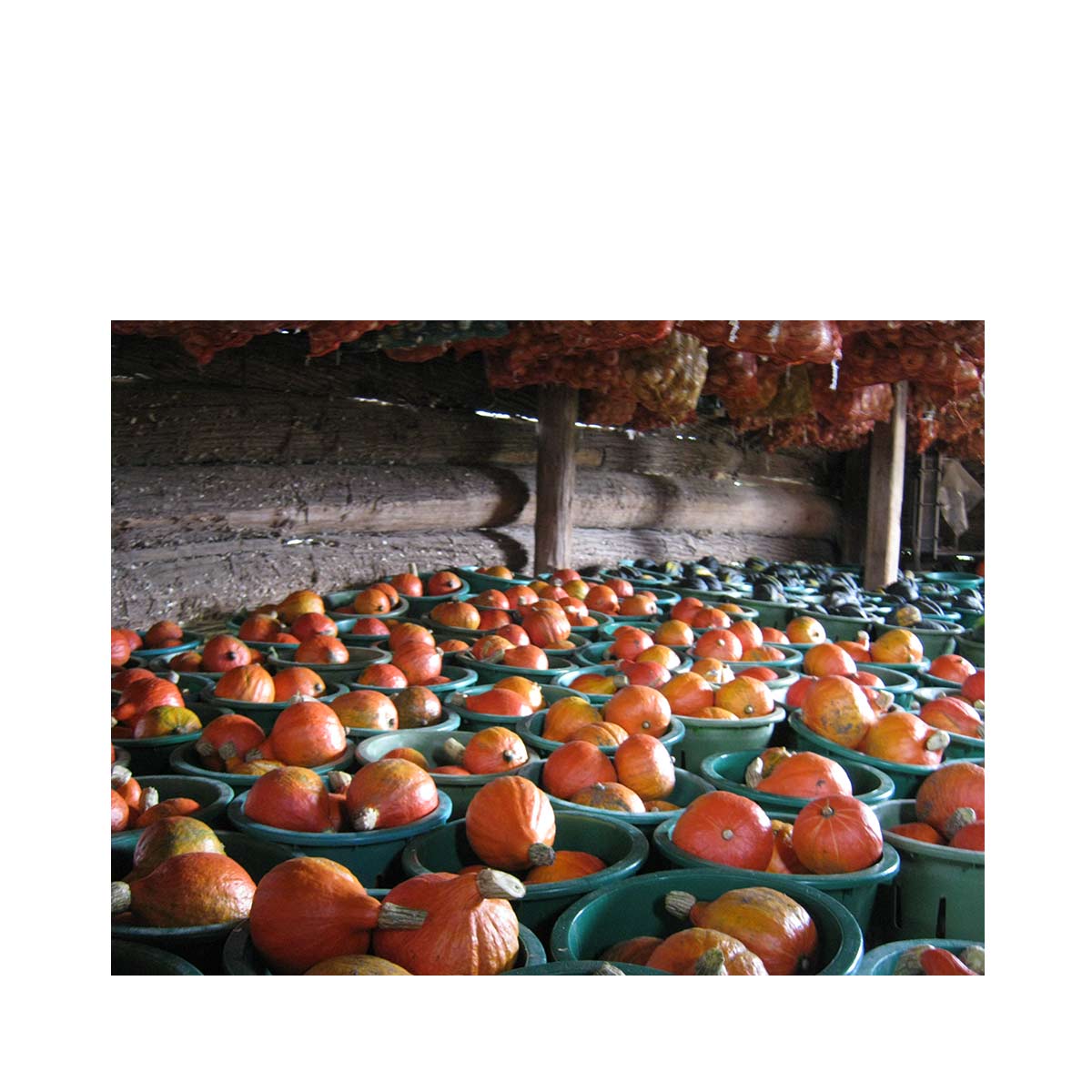This content has been archived. It may no longer be relevant
MH Farm
As with the rest of the world, the big story for us Madonna House farmers and our farm, St. Benedict’s Acres, this past growing season was COVID-19.
The pandemic provoked a lot of uncertainty, a great deal of hardship, and even quite a bit of fear. Many questions were asked of us: “How would we get the crops planted?” “How could we keep the large gardens weeded?” “Where would the hands come from to harvest?”
Like many farmers, we rely on off-farm workers (our working guests) to help us. It takes a crew to unload and stack hay bales in the barn. And among other things, the chickens and sheep and cattle need daily feeding and pasturing and clean barns.
And then there is the food processing: canning rhubarb, freezing broccoli and green beans, making apple juice, harvesting the meat, etc., etc. Hands are needed to pick the berries and herbs, and to make jams and teas. Apple orchards need pruning and mowing beneath the trees.
Many hands make light work! And so, we prayed and hoped for help.
Then there was another question, one that so many throughout the world were asking: Would we be spared, or would we get this virus? Would some of us die?
As the pandemic marched across Europe, we heard of so many tragedies within religious communities and long term residences for the elderly—places like ours in that people live very closely together.
Then our continent suffered many casualties—of sickness and death and unemployment.
And as of this writing, there are millions of people in places like India, Brazil, and Africa where substantial numbers of people have lost work and are hungry. And what of the grieving families?
Another big story for us this year was how our faithful working guests who were here at the beginning of the lock-down stayed and helped so generously. And how the staff and guests filled woodsheds and planted gardens, and washed clothes and collected and washed eggs.
In order to have enough food for the coming winter, we had to prioritize the work. Some staff were temporarily brought back from the field houses; some who were already here were shifted to new work areas.
We had weekly garden bees in the evenings—bees in which everyone who could participated—to weed or thin or harvest the crops. One night we weeded and thinned carrots; another, the beets and cabbage and broccoli. Then when they were ready, we harvested the green beans—one of our staples
.
Crews were assigned to bring in the prodigious crops of squash and sweet corn. With another year of experience, and good growing conditions, we had amazing yields.
The rhubarb, which was overrun by quack grass, was tilled and manured and gave a good response. Next year’s acreage for potatoes was fallowed and green manured to reduce future weeds. People were generous with their time and energy.
The spring and early summer was quite dry, but because we put in irrigation several years ago, we could keep the gardens watered enough to come through. When the farm pond ran dry, the men replaced a culvert to open up the water way to replenish it. Broken machines were repaired and even some farm improvements accomplished.
But our best, our biggest story of the year, was how God walked the rows with us, baled the hay fields, and filled the barns. In the orchards and at food processing, he was with us.
While feeding the workers, and in the planning and prayers that passed up to heaven, Love presided. God amazed us with many wonderful harvests. The crops were simply beyond what could have been predicted. There was something and Someone who was helping us. Then just in the nick of time, God sent rain for thirsty crops and pastures.
We have a big, beautiful carved wooden plaque hanging high in the front room of our farm house. It reads: “My Father is the Farmer—Mon Père est le Jardinier.” It is a prayer and a reminder to turn to him.
God honored all our efforts, our worries and prayers so that we could continue to serve the Church. Thanks be to God.
Actually COVID-19 was relatively rare in the entire area surrounding us—and all our precautions and protocols certainly helped.
The biggest and the best outcome for 2020 on our farm and within our community was (and always will be) the care that God extends to his children. Delighting in generosity, God enabled us to participate in his Kingdom of Mercy.
We do remember the many millions throughout this troubled world who remain in need. They are carrying the heavy burden of poverty, of isolation, of the effects of disease and unemployment. So many have died alone and without a funeral.
Weddings and celebrations and schooling have been postponed. The elderly are often left alone. Young people’s plans for education or work have been altered.
And so, we offer our prayers, our hearts, our identification to farmers and all peoples at this time of great suffering. And however we can, we extend our hands to help them.
In this coming year of 2021, may God spare our world the worst of this ongoing pandemic.
May we turn to him in faith and supplication. May we learn more deeply how to cultivate lives of simplicity and love according to the Gospel of Our Lord Jesus Christ so that His harvest of Life may extend to all the fields and gardens of humanity around the world.





